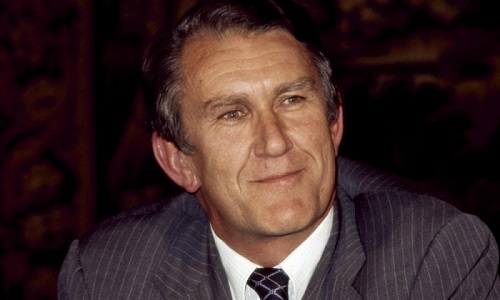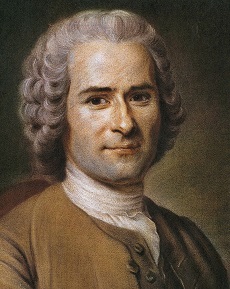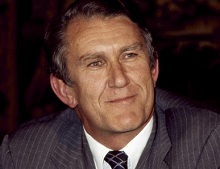Former prime minister Malcolm Fraser has died aged 84. Here he is in his prime:

Former PMs have had nice things to say. Here’s Paul Keating:
“I always thought Malcolm would be around a lot longer. I must say, I wished he had been.
“Notwithstanding a controversial prime ministership, in later years he harboured one abiding and important idea about Australia – its need and its right to be a strategically independent country.
“His public life also enshrined other important principles: no truck with race or colour and no tolerance for whispered notions of exclusivity tinged by race. These principles applied throughout his political life.”
The same article summed his contribution as follows:
In office, Fraser was a staunch conservative on economic policies, an opponent of deregulation – and he was was criticised by his colleagues for lacking reform zeal. But he continued many of Labor’s progressive reforms.
In 1976 he established the family court of Australia and federal court of Australia; granted the Northern Territory self-government; passed the Aboriginal Land Rights (Northern Territory) Act; created the position of federal ombudsman and established the ABC’s FM radio service. The next year, he established the National Aboriginal Conference and SBS.
In 1979 the Fraser government established the Australian Refugee Advisory Council to advise it on the settlement of refugees – many of whom had been arriving as “boat people” from Vietnam since 1978.
After criticising the Liberal party’s direction during the years of the Howard government, Fraser finally quit the party when Tony Abbott came to the opposition leadership, unhappy with Abbott’s rejection of emissions trading. He said the Liberal party was no longer a liberal party but instead a conservative party.
Fraser campaigned assiduously for human rights and attacked the party’s stance on immigration and refugees.
Economics was perhaps his weak spot. Richard Holden summarises:
Australia can be justifiably proud of an approach to economics that is squarely between Europe and the United States. The US, on the whole, champions free enterprise despite the social costs; Europe sees a much larger role for the state, even if that inhibits free enterprise. The Australia in which we live today is somewhere in between.
When Malcolm Fraser became prime minister that was all up for grabs. We could have become “old Euope” or veered onto a radically individualist path in response to the debacle that came before. Fraser helped us chart a middle course, and we should be very grateful for that.
Perhaps he wasn’t quite up to the challenge, but he had a steady hand and did no great harm. The Guardian has a suite of articles, the titles of which tell a story:
Malcolm Fraser’s steady hand is in stark contrast to Tony Abbott’s chaotic manoeuvres Lenore Taylor
Malcolm Fraser had no Damascene conversion – he always championed human rights Katherine Murphy
Malcolm Fraser, a leader who believed there is a moral compass in our nation’s life Fred Chaney
Malcolm Fraser dared to dream of a truly original Australian foreign policy Margaret Simons
Fraser’s great conservative achievement: cementing Whitlam’s progress on race Robert Manne
Fraser’s politics didn’t shift much after 1975, but the rest of Australia’s did Julian Burnside
Tributes roll in – a prime minister who won three elections remembered
Malcolm Fraser: Australia’s former prime minister – in pictures
Fraser was ruthless in gaining power, first in the coup that unseated Gorton as PM, then doing over Billy Sneddon for the Liberal leadership and later in the famous dismissal of the Whitlam government. I hated him tribally for that, and disliked him for his apparent aloofness and arrogance, but later came to see him as a man of principle and values.
There’s more on his legacy at the ABC and heaps of articles just about wherever you look!
Probably the best article that takes you to the complexity of the personality and his politics is Guy Rundle at Crikey, unfortunately paywalled.
A remaining mystery is what really happened that night in Memphis, when Fraser turned up in the foyer of a seedy hotel without his trousers.
Update: Must read on Fraser at The Piping Shrike.



